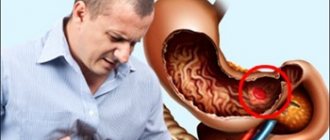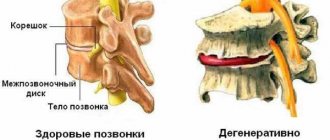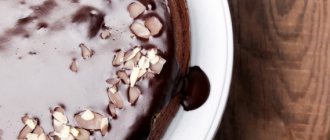According to statistics, about 40% of Russians regularly experience stool disorders. They may be associated with chronic gastrointestinal diseases, food poisoning, poor diet, sedentary work, and lack of physical activity. Impaired bowel movements cause discomfort and significantly reduce the quality of life.
Adults most often suffer from constipation. Many people solve a delicate problem with pharmaceutical products. However, after taking a laxative, diarrhea occurs. To eliminate it, you have to take activated carbon and other adsorbents. If you use them often or do not follow the dosage, constipation can become chronic. Find out how to restore normal functioning of the gastrointestinal tract to forget about delicate problems.
Composition and release form
The main component of the drug is bicasodil. Excipients have different compositions depending on the dosage form. These are cellulose, lactose, powdered sugar, talc, wax, magnesium stearate, medical polyvinylporrolidone, corn starch.
The laxative is dispensed in the form of:
- Tablets - have a soluble intestinal coating, for oral administration. Light brown, biconvex, round in shape. The package contains several blisters of 10 pieces.
- Suppositories are administered rectally. Contains 10 mg of active substance. Packaged in cardboard packaging of 10 suppositories.
Horse sorrel
Contains anthraquinone compounds - emodin and chrysophanic acid. The effect depends on the dose taken: in a small dose it acts as an astringent, in a large dose it acts as a laxative. The action of sorrel is close to rhubarb. It is used as a laxative with the onset of effect after 10-12 hours.
Sorrel roots are used as a laxative in the form of infusion, decoction and extracts.
Decoction of horse sorrel roots
Sorrel roots and rhizomes – 5 g – 2 tbsp. l.
- Pour 200 ml of hot boiled water over the raw materials.
- Cover and heat in a water bath for 30 minutes.
- Cool for 10 minutes.
- Strain the resulting broth and bring to 200 ml with boiled water.
Drink half a glass at night. Store in a cool place for no more than 2 days.
How does the laxative Bisacodyl work?
Bicasodil is a strong drug. The main pharmacological effect is laxative. It has a direct effect on the nerve receptors of the large intestine, helping to restore peristalsis and its natural release. The drug stimulates the synthesis of mucus, so emptying the body occurs easily.
Along with the normalization of intestinal motor function, Bicasodil accumulates fluid in it. Due to this, the feces soften and are excreted without problems.
After oral administration, the therapeutic effect of the laxative is observed after 6 hours. When using a suppository, the effect occurs after 30-60 minutes.
Salad for constipation
“Broom” salad has become a popular instant remedy for cleansing the intestines at home. It gives a strong laxative result and is safe for health. Helps remove toxins. The composition includes raw vegetables with a laxative effect, which makes the salad an excellent assistant in treating constipation at home.
To prepare the salad you will need a simple set of ingredients:
- grated beets;
- carrot;
- cabbage;
- celery.
All vegetables must be fresh. The products are thoroughly chopped, not seasoned with oil and eaten without adding salt.
Contraindications
Absolute contraindications for the use of laxatives are:
- Children under 2 years of age.
- Allergic reaction to active or auxiliary components.
- Violation of the integrity of the anus.
- Severe gastrointestinal diseases.
- Inflammation of the anterior abdominal wall.
- Hernia.
- Spastic constipation.
- Intestinal neoplasms.
- Pain in the epigastric region of unknown etiology.
- Inflammatory lesion of the caecum.
- Gynecological bleeding.
- Cystitis.
- Dehydration of the body.
- Violation of water balance.
- Blood loss from the gastrointestinal tract.
It is also not recommended to use the drug during pregnancy, lactation, liver and kidney diseases.
Alder buckthorn (brittle)
All parts of the plant contain anthracene substances, most of them accumulate in the bark. The bark is used for laxative purposes, but only after drying and some time of storage or artificial heating.
Fresh and immediately after drying, the bark has an emetic effect, so it is necessary to destroy the substances that cause this effect.
Oxidation occurs gradually when storing or heating the raw materials at 100°C for 1 hour. The bark is collected in the spring, before flowering begins.
Dry and liquid extracts and decoctions are prepared from buckthorn bark.
Contraindications: constipation of neurogenic and hormonal origin. When used for a long time in large doses, it causes excessive blood flow to the pelvic area and can cause miscarriage during pregnancy.
In case of an overdose, colicky pain and discomfort in the abdominal area are possible.
Alder buckthorn decoction
Buckthorn bark – 20 g (2 tbsp.).
- Pour a glass of boiling water.
- Cover and heat for 30 minutes in a water bath, stirring frequently.
- Cool and filter.
Drink half a glass at night. Store the broth for no longer than 2 days in a cool place.
How to take the laxative Bisacodyl
Depending on the dosage form, Bicasodil has features in its use.
Suppositories are intended for administration into the colon. The dose of the drug is 10-20 mg per day. For the first dose, no more than 1 suppository per day. If there is no therapeutic effect, the dosage is doubled.
To empty the intestines, the suppository is administered at any time, the effect occurs within an hour. The pharmacological activity of the laxative does not depend on food intake.
To cleanse the body before medical procedures, you need to take 2-4 tablets one time in the evening and insert 1 suppository into the anus in the morning.
The dose for children over 12 years of age and adults is 1-3 tablets or 5-15 mg per day. It is advisable to take 1 tablet before bedtime. If there is no laxative effect, double doses of the drug are used.
The pills are taken regardless of food, at a convenient time. The therapeutic effect occurs after 6 hours. The first dose of Bisacodyl should be started with a minimum dose of 5 mg per day. Subsequently increase to 10-15 mg if necessary.
To prevent overdose, do not take more than 4 tablets per day.
Do not chew dragees and tablets; take them with plenty of water. When using the drug, it is recommended to monitor the liquid you drink during the day, at least 1.5 liters.
The course of therapy with Bicasodil is a week. If it is necessary to use the drug for a long time, take a break.
If the activity of the excretory system is disrupted and there is liver pathology, the drug should be taken with caution. Dosage per day is no more than 1 tablet.
During the treatment course, it is important to exclude dairy products and mineral water from the diet. They contribute to the rapid dissolution of the drug, which leads to a lack of therapeutic effect.
Diet for constipation
With prolonged constipation, feces stagnate in the intestines. Over time, they lose water and become dense and hard. For this reason, emptying becomes problematic and painful. Another problem that constipation causes is intoxication of the body.
Homemade meals made from products with a laxative effect can help the patient. Laxative foods for constipation:
- steamed, baked and raw pumpkin;
- raw beets in salads, beet juice;
- oats and bran boiled in boiling water;
- prunes – 20 pieces per day;
- green peas and pea puree;
- plums;
- potato juice;
- steamed flax seeds;
- kefir;
- black currant;
- green tea with milk;
- seaweed;
- white cabbage juice;
- fresh herbs, a laxative cocktail of beet juice and spinach.
These laxative products help cleanse the body of feces at home and also promote weight loss. If you are constipated, you need to eat homemade food that is high in fiber.
Cellulose, also known as fiber, is not digested by the body. But it has another useful property - it increases the volume of feces, as a result of which defecation occurs much faster. Also, if you have constipation, you should avoid dehydration and drink as much fluid as possible.
Side effects
A laxative can cause negative reactions such as:
- Gas formation.
- Pain in the epigastrium.
- Feeling nauseous.
- Possible vomiting.
- Diarrhea, including the profuse type, which leads to dehydration.
- Lack of intestinal motility.
- Allergic manifestations in the form of swelling, itching, development of urticaria symptoms.
- Local irritation in the anus when taking suppositories.
Rhubarb Tangut
The plant contains anthraquinones - chrysophanol, emodin and rhein.
For medicinal purposes, roots harvested in early spring or autumn in the third year of the plant’s life are used.
Rhubarb roots contain both anthracene substances with laxative properties and tannins with a fixing effect. The result of application depends on the dose of rhubarb. The laxative effect occurs in large doses from 0.5 g to 2 g. In smaller doses the effect will be the opposite.
Used for intestinal atony, flatulence, chronic constipation. Can be taken by children and elderly.
Ready-made dry extracts, tinctures and syrups of rhubarb are used as a mild laxative, since there are more tannins in aqueous infusions.
Black elderberry
Elderberry flowers contain mucous and essential substances. It has a mild laxative effect in high doses. Elderberry is used in combined laxative preparations.
Elderberry infusion for constipation
Joster fruits 50 g,
Black elderberry flowers 50 g.
- 2 tbsp. l. Add 200 ml of boiling water to the mixed ingredients.
- Heat in boiling water for 30 minutes.
- Cool for 10 minutes.
- Filter, add if necessary to 200 ml.
Drink a glass in the morning and evening on a full stomach.
Plantain
All types of plantain contain polysaccharides. The seeds are used for laxative purposes. Due to its mild effect, it is suitable for the treatment of constipation in the elderly.
Plantain seeds increase the volume of intestinal contents; the mucus they contain facilitates the passage of food and feces.
Because mucus coats the mucous membrane, it can slow down the absorption of some medications. This should be taken into account when combining plantain products with others, delimiting them by time of administration.
Psyllium seed mucilage
Prepare immediately before use.
- 2 tbsp. l. Pour a glass of boiling water over the washed seeds.
- Leave for 10 minutes, take 1 tbsp before meals. l.
Dandelion officinalis
Dandelion contains many polysaccharides. The roots of the plant are used for laxative purposes. It is used for persistent constipation and constipation accompanied by hemorrhoids. Along with accelerating bowel emptying, dandelion will improve the digestion process as a whole, affecting bile secretion and the secretion of digestive juices.
Dandelion root decoction
Dandelion roots 1 tbsp. l.
- Pour a glass of hot water over the chopped roots.
- Boil over low heat for 15 minutes.
- Leave to cool for 45 minutes.
- Filter.
Drink half a glass once a day for 15 minutes on an empty stomach.
Sources
- Shmygareva A. A., Kurkin V. A., Sankov A. N. Comparative study of the laxative effect of drugs containing anthraglycosides. Medical almanac, 2015, September.
- Kurkin V. A., Shmygareva A. A., Sankov A. N. Comparison of the laxative effect of various extracts from Frangula alnus and the fruits of Rhamnus cathartica.
- Romanyuk A. A., Moiseev D. V. Buckthorn brittle bark: component composition, pharmacological properties, standardization. Bulletin of Pharmacy, 2021, 2.
- WHO monographs on medicinal plants widely used in the Newly Independent States. WHO Library Cataloging-in-Publication Data, 2010.
- Kurkin V. A. Pharmacognosy. Tutorial. 2010.







